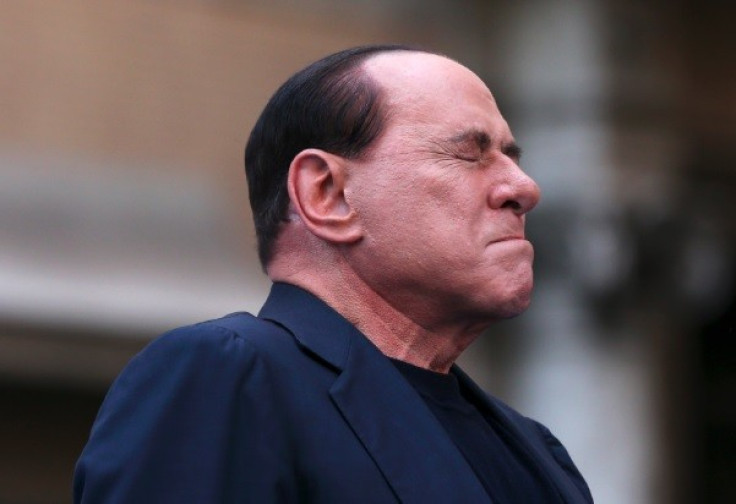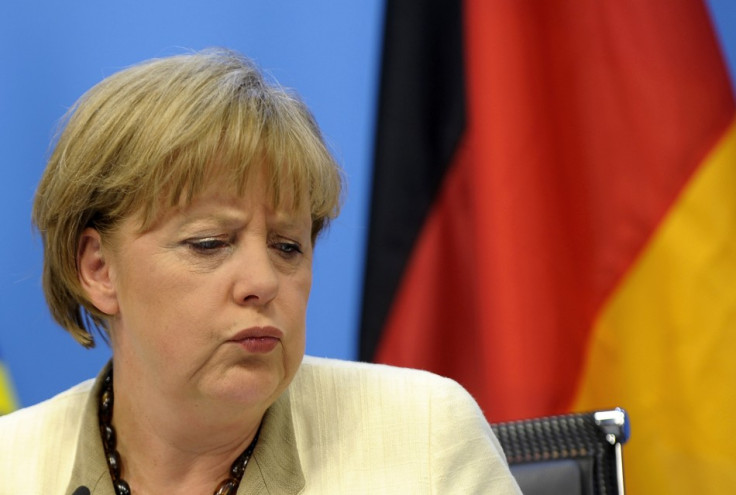Markets, Politics and Economics: Hiatus, Crisis and Silence in Europe

There have been some chinks of light in the Economic and Monetary Union economies, headed-up by positive Manufacturing PMI surveys in the EMU as a whole, and many from a few stand-out countries.
This includes Germany, Italy (after 26 months of contraction), Poland (after 15 months) and Netherlands (after 12 months) while France and Spain are very close to the critical 50 level.
Unemployment may have peaked at last in Spain and Italy and there were less terrible industrial production numbers in France, Italy and Spain (but an ominous set-back in Germany).
The European Central Bank (ECB) President Mario Draghi says the worst is over but while he may literally be correct it is hard to see much more than minimal growth for at least another two years.
The great hope remains Germany but it needs exports and its main markets in Asia, Eastern Europe and other EMU countries are all in varying states of distress.
Economics and Political Hiatus
I am a regular visitor to both France and Italy and, over the last few weeks, I have never been so struck by the economic and political hiatus.
A huge change in France is that more and more people are looking beyond worthy commitments to EMU concordats or even hopes that Germany will step up with some sort of back-dated WW II reparations.
The unthinkable is not only being thought but spoken about in polite circles: the French social model, the envy of the uncivilised (and civilised) world, is no longer affordable.
The usual suspects of health and welfare costs for an ageing population are certainly a factor but it is generous and unfunded pensions, together with a retirement age of 62 that are crippling public finances.
Taxes and social security charges on both employers and employees are not covering costs and yet any further increases are likely to be counterproductive in discouraging employment and growth. (Even the superb TGV rail network is regarded increasingly as a white elephant; HS2 fans in the UK take note).
All of this is unacceptable to most (but not quite all) union leaders who have worked to elect a Socialist President and National Assembly and want more state intervention to eschew austerity and create jobs.
Francois Hollande does not seem to have the stomach for a fight with his natural supporters and looks like a Wilkins Micawber in waiting for something to turn up.
Bleak Outlook?
A Red-Green government in Germany would be a useful start!
Beyond left-wing circles wistful talk is becoming more overt of the need for a combination of Margeret Thatcher-like employment law reforms (hiring, firing and striking, working hours, benefits) and UK Coalition-like initiatives on public debt, welfare benefits, the banking industry, tax cuts and supply side spending.
It looks as if France will have to wait at least until the next election before seeing any major reforms and the economy will surely stagnate until then.
The outlook for Italy is even bleaker where there appears to be no consensus on the economy but only vested interests opposed to change.
Some of those interests are non-political but no less determined to protect their corners: state-controlled enterprises, trade and professional associations and, more sinister, the commercial arms of the Mafia. Employers' organisations, notably Confindustria, try to stay non-political in championing reform but are opposed by the highly politicised trade unions and large-scale co-op enterprises, which are the heirs of the post-war Communist Party.
Another key arm of the Left are the magistrates, especially in the North and Centre-North, who seem accountable to nobody while mounting prosecutions and giving judgements that can seem overtly political. The politicians themselves (derisively called La Casta- a caste of Untouchables) are both a self-serving interest group collectively as well as vicious rivals within and between parties.
It is not surprising, therefore, that Italy has been stagnating since well before the current recession and that no relief is in sight.
The widespread air of resignation and hopelessness is palpable and it is sad to watch so many people getting poorer. It is no exaggeration to draw parallels with Japan's lost decades
Italy's Political Drama
Writing today from Italy, there is high political drama following the confirmation of Silvio Berlusconi's conviction for tax fraud.
The Magistrates in at last cornering the arch-enemy have set up what they perceive as the final triumph of the Left.
President Napolitano, also from the Left and a bitter opponent of Il Cavaliere must be tempted to deliver the knock-out blow. However, not only does the Left-led government need the support of Mr Berlusconi's PDL party but the PD itself is riven by division and rival ambition.
Even worse for the President, the PDL is gaining in the opinion polls and could yet win an election if the government fell.
Accordingly, Giorgio Napolitano will probably try to preserve the government and delay elections as long as possible in the hope that the PDL will splinter over any continuing role for Il Cavaliere and he will take comfort that there is no other figure on the right with the potential of a Thatcher or even of a 'nice' reformer like UK's David Cameron.
In doing so, he will almost certainly have to offer Berlusconi, who has already avoided both jail and expropriation, the chance to return to front-line politics after a period in purdah.
This will be very risky as Berlusconi will surely put ever more pressure on the government to pursue not just his own favourite populist policies but to pursue genuine reforms which, to be fair, he attempted before he became cynically inactive in the teeth of opposition from the Left and other vested interests.
Rows Between IMF and Germany

Joseph Muscat, Prime Minister of Malta, put it perfectly when he said last week that Europe was 'in the waiting room' until the German election on September 22nd.
The EU Commission tried to push a first step on bank resolution but ran into implacable opposition from even the Europhile Wolfgang Schäuble.
Only Antonis Samaras of Greece has had the courage to use a row between the IMF and Germany over a looming further €11bn shortfall as justification for not implementing more job cuts, thereby making even more likely the haircuts on official debt that Schäuble went to Athens specifically to warn him against.
Samaras, in the role of Oliver Twist, is turning out to be a fine Greek counterpart to Scotland's Alex Salmond.
I am beginning to suspect that Angela Merkel has received very discreet hints from the Bundesverfassungsgericht that the judges are going to rule that the ECB's OMT (Mr Draghi's 'whatever it takes') programme would constitute financial assistance if an EMU government benefitting from it were subsequently to default or impose haircuts on its sovereign bonds.
The Court will definitely not claim jurisdiction over the ECB but it may declare that any Bundesbank participation in the OMT would require not only a vote in the Bundestag but an EMU-wide treaty change.
Having previously exercised restraint on German participation in the bail-out funds, the Court may also warn that any proposed increases to those existing funds, any contributions to bank resolution funds and participation in common Eurobonds would also require treaty changes.
Such an outcome would effectively kill off any new rescue proposals not only because the Bundestag has always shown the greatest reluctance to hand over German taxpayer money but also because treaty changes require referenda in many other countries and on these matters would be most unlikely to win a majority in several of them.
This possibility must have occurred to investors but on the whole they seem to dismiss it with serenity or would complacency be a better description?
Merkel is famous for her policy-U turns but even in the flush of another likely election victory she is unlikely to offer to open her purse and embark on wholesale treaty changes.
Instead, she will have to excuse indefinitely France, Italy and Spain (and the smaller fry) from meeting the 3% deficit/GDP and 60% public debt/GDP rules.
She has already stopped talking of 'more Europe' and may like Cameron, Rutte and Reinfeldt henceforth be thinking about 'less Europe'. For now, anything controversial must stay securely in the waiting room.
Alastair Winter is the Chief Economist at Daniel Stewart & Co
© Copyright IBTimes 2024. All rights reserved.






